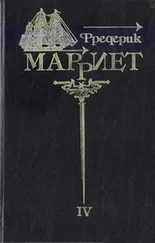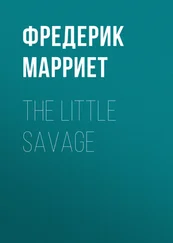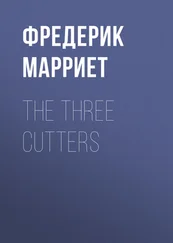Фредерик Марриет - Jacob Faithful
Здесь есть возможность читать онлайн «Фредерик Марриет - Jacob Faithful» — ознакомительный отрывок электронной книги совершенно бесплатно, а после прочтения отрывка купить полную версию. В некоторых случаях можно слушать аудио, скачать через торрент в формате fb2 и присутствует краткое содержание. Жанр: prose_military, literature_19, foreign_antique, foreign_prose, на английском языке. Описание произведения, (предисловие) а так же отзывы посетителей доступны на портале библиотеки ЛибКат.
- Название:Jacob Faithful
- Автор:
- Жанр:
- Год:неизвестен
- ISBN:нет данных
- Рейтинг книги:4 / 5. Голосов: 1
-
Избранное:Добавить в избранное
- Отзывы:
-
Ваша оценка:
- 80
- 1
- 2
- 3
- 4
- 5
Jacob Faithful: краткое содержание, описание и аннотация
Предлагаем к чтению аннотацию, описание, краткое содержание или предисловие (зависит от того, что написал сам автор книги «Jacob Faithful»). Если вы не нашли необходимую информацию о книге — напишите в комментариях, мы постараемся отыскать её.
Jacob Faithful — читать онлайн ознакомительный отрывок
Ниже представлен текст книги, разбитый по страницам. Система сохранения места последней прочитанной страницы, позволяет с удобством читать онлайн бесплатно книгу «Jacob Faithful», без необходимости каждый раз заново искать на чём Вы остановились. Поставьте закладку, и сможете в любой момент перейти на страницу, на которой закончили чтение.
Интервал:
Закладка:
During this speech I was scrutinising the outward man of my future controller. He was stout and well-built, inclining to corpulence, his features remarkably good, although his eyes were not large. His mouth was very small, and there was a good-natured smile on his lips as he answered, “I never treated a cat ill, master.”
“I believe not,” replied Mr Drummond; “but I am anxious that Jacob should do well in the world, and therefore let you know that he will always have my protection, so long as he conducts himself properly.”
“We shall be very good friends, sir, I’ll answer for it, if I may judge from the cut of his jib,” replied Marables, extending to me an immense hand, as broad as it was long.
After this introduction, Mr Drummond gave him some directions, and left us together.
“Come and see the craft, boy,” said Marables and I followed him to the barge, which was one of those fitted with a mast which lowered down and hauled up again, as required. She plied up and down the river as far as the Nore, sometimes extending her voyage still farther: but that was only in the summer months. She had a large cabin abaft, and a cuddy forward. The cabin was locked, and I could not examine it.
“This will be your berth,” said Marables, pointing to the cuddy-hatch forward; “you will have it all to yourself. The other man and I sleep abaft.”
“Have you another man, then?”
“Yes, I have, Jacob,” replied he; and then muttering to himself, “I wish I had not—I wish the barge was only between us, Jacob, or that you had not been sent on board,” continued he, gravely. “It would have been better—much better.” And he walked aft, whistling in a low tone, looking down sadly on the deck.
“Is your cabin large?” inquired I, as he came forward.
“Yes, large enough; but I cannot show it to you now—he has the key.”
“What, the other man under you?”
“Yes,” replied Marables, hastily. “I’ve been thinking, Jacob, that you may as well remain on shore till we start. You can be of no use here.”
To this I had no objection; but I often went on board during the fortnight that the barge remained, and soon became very partial to Marables. There was a kindness about him that won me, and I was distressed to perceive that he was often very melancholy. What surprised me most was to find that during the first week the cabin was constantly locked, and that Marables had not the key; it appeared so strange that he, as master of the barge, should be locked out of his own cabin by his inferior.
One day I went early on board, and found not only the cabin doors open, but the other man belonging to her walking up and down the deck with Marables. He was a well-looking, tall, active young man, apparently not thirty, with a general boldness of countenance strongly contrasted with a furtive glance of the eye. He had a sort of blue smock-frock over-all, and the trousers which appeared below were of a finer texture than those usually worn by people of his condition.
“This is the lad who is bound to the barge,” said Marables. “Jacob, this is Fleming.”
“So, younker,” said Fleming, after casting an inquiring eye upon me, “you are to sail with us, are you? It’s my opinion that your room would be better than your company. However, if you keep your eyes open, I’d advise you to keep your mouth shut. When I don’t like people’s company, I sometimes give them a hoist into the stream—so keep a sharp look out, my joker.”
Not very well pleased with this address, I answered, “I thought Marables had charge of the craft, and that I was to look to him for orders.”
“Did you, indeed!” replied Fleming, with a sneer. “I say, my lad, can you swim?”
“No, I can’t,” replied I—“I wish I could.”
“Well, then, take my advice—learn to swim as fast as you can for I have a strong notion that one day or other I shall take you by the scruff of the neck, and send you to look after your father.”
“Fleming! Fleming! pray be quiet!” said Marables, who had several times pulled him by the sleeve. “He’s only joking, Jacob,” continued Marables to me, as, indignant at the mention of my father’s death, I was walking away to the shore, over the other lighters.
“Well,” replied I, turning round, “if I am to be tossed overboard, it’s just as well to let Mr Drummond know, that if I’m missing he may guess what’s become of me.”
“Pooh! nonsense!” said Fleming, immediately altering his manner, and coming to me where I stood in the barge next to them. “Give us your hand, my boy; I was only trying what stuff you were made of. Come, shake hands; I wasn’t in earnest.”
I took the proffered hand, and went on shore. “Nevertheless,” thought I, “I’ll learn to swim; for I rather think he was in earnest.” And I took my first lesson that day; and by dint of practice soon acquired that very necessary art. Had it not been for the threat of Fleming, I probably should not have thought of it; but it occurred to me that I might tumble, even if I were not thrown overboard, and that a knowledge of swimming would do no harm.
The day before the barge was to proceed down the river to Sheerness, with a cargo of bricks, I called upon my worthy old master, Dominie Dobiensis.
“ Salve puer !” cried the old man, who was sitting in his study. “Verily, Jacob, thou art come in good time. I am at leisure, and will give thee a lesson. Sit down, my child.”
The Dominie opened the Aeneid of Virgil, and commenced forthwith. I was fortunate enough to please him with my off-hand translation; and as he closed the book, I told him that I had called to bid him farewell, as we started at daylight the next morning.
“Jacob,” said he, “thou hast profited well by the lessons which I have bestowed upon thee: now take heed of that advice which I am now about to offer to thee. There are many who will tell thee that thy knowledge is of no use, for what avail can the Latin tongue be to a boy on board of a lighter. Others may think that I have done wrong thus to instruct thee, as thy knowledge may render thee vain— nil exactius eruditiusque est —or discontented with thy situation in life. Such is too often the case, I grant; but it is because education is not as general as it ought to be. Were all educated, the superiority acquired or presumed upon by education would be lost, and the nation would not only be wiser but happier. It would judge more rightly, would not condemn the measures of its rulers, which at present it cannot understand, and would not be led away by the clamour and misrepresentation of the disaffected. But I must not digress, as time is short. Jacob, I feel that thou wilt not be spoilt by the knowledge instilled into thee; but mark me, parade it not, for it will be vanity, and make thee enemies. Cultivate thyself as much as thou canst, but in due season—thy duties to thy employer must be first attended to—but treasure up what thou hast, and lay up more when thou canst. Consider it as hidden wealth, which may hereafter be advantageously employed. Thou art now but an apprentice in a barge; but what mayest thou not be, Jacob, if thou art diligent—if thou fear God, and be honest? I will now call to my mind some examples to stimulate thee in thy career.”
Here the Dominie brought forward about forty or fifty instances from history, in which people from nothing had risen to the highest rank and consideration; but although I listened to them very attentively, the reader will probably not regret the omission of the Dominie’s catalogue. Having concluded, the Dominie gave me a Latin Testament, the Whole Duty of Man, and his blessing. The matron added to them a large slice of seed-cake and by the time that I had returned to Mr Drummond’s, both the Dominie’s precepts and the matron’s considerate addition had been well digested.
Читать дальшеИнтервал:
Закладка:
Похожие книги на «Jacob Faithful»
Представляем Вашему вниманию похожие книги на «Jacob Faithful» списком для выбора. Мы отобрали схожую по названию и смыслу литературу в надежде предоставить читателям больше вариантов отыскать новые, интересные, ещё непрочитанные произведения.
Обсуждение, отзывы о книге «Jacob Faithful» и просто собственные мнения читателей. Оставьте ваши комментарии, напишите, что Вы думаете о произведении, его смысле или главных героях. Укажите что конкретно понравилось, а что нет, и почему Вы так считаете.












